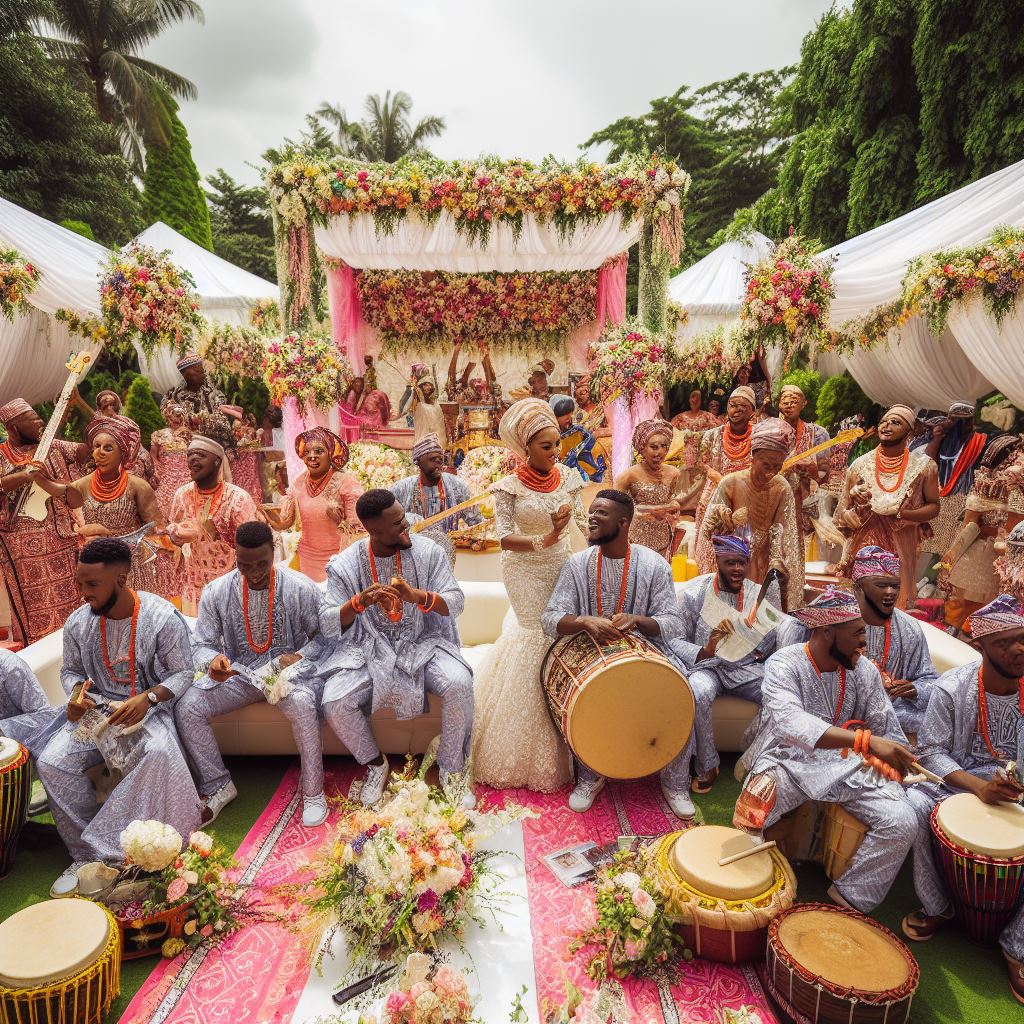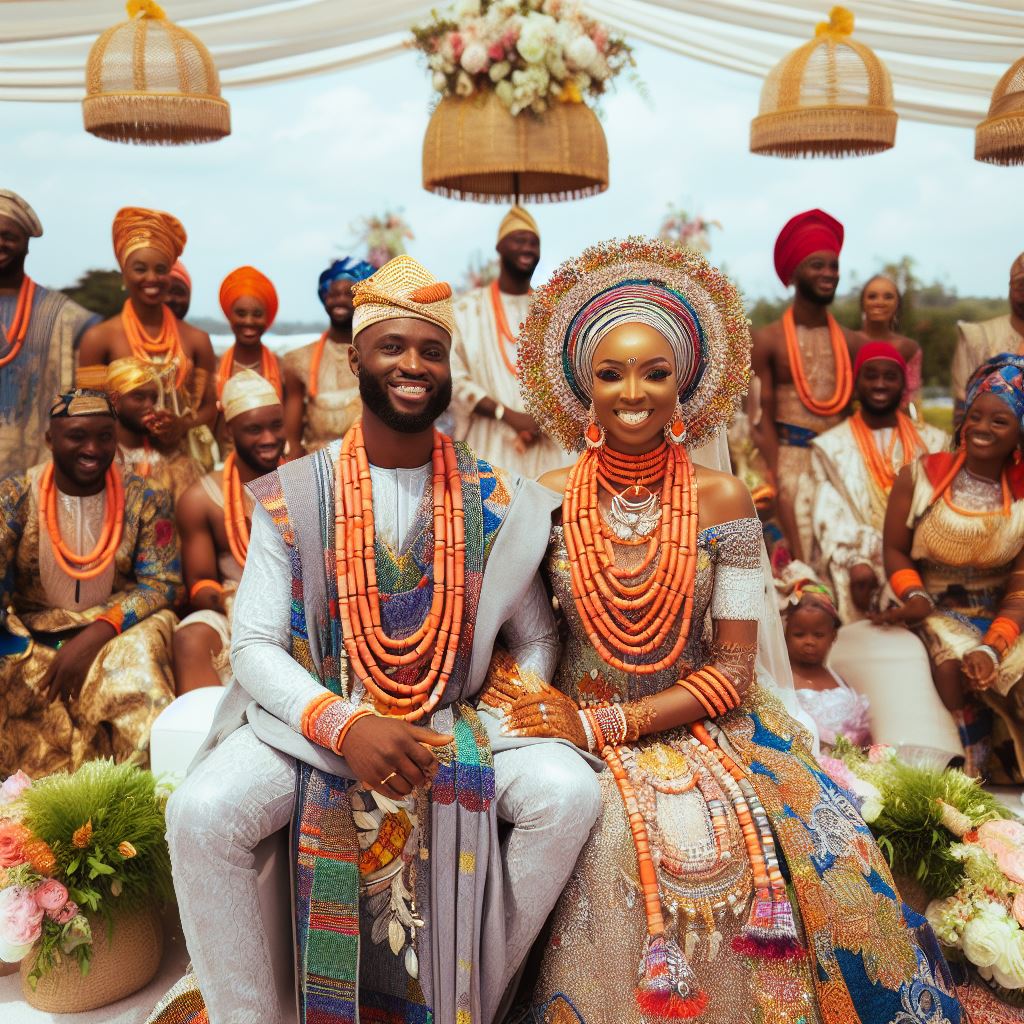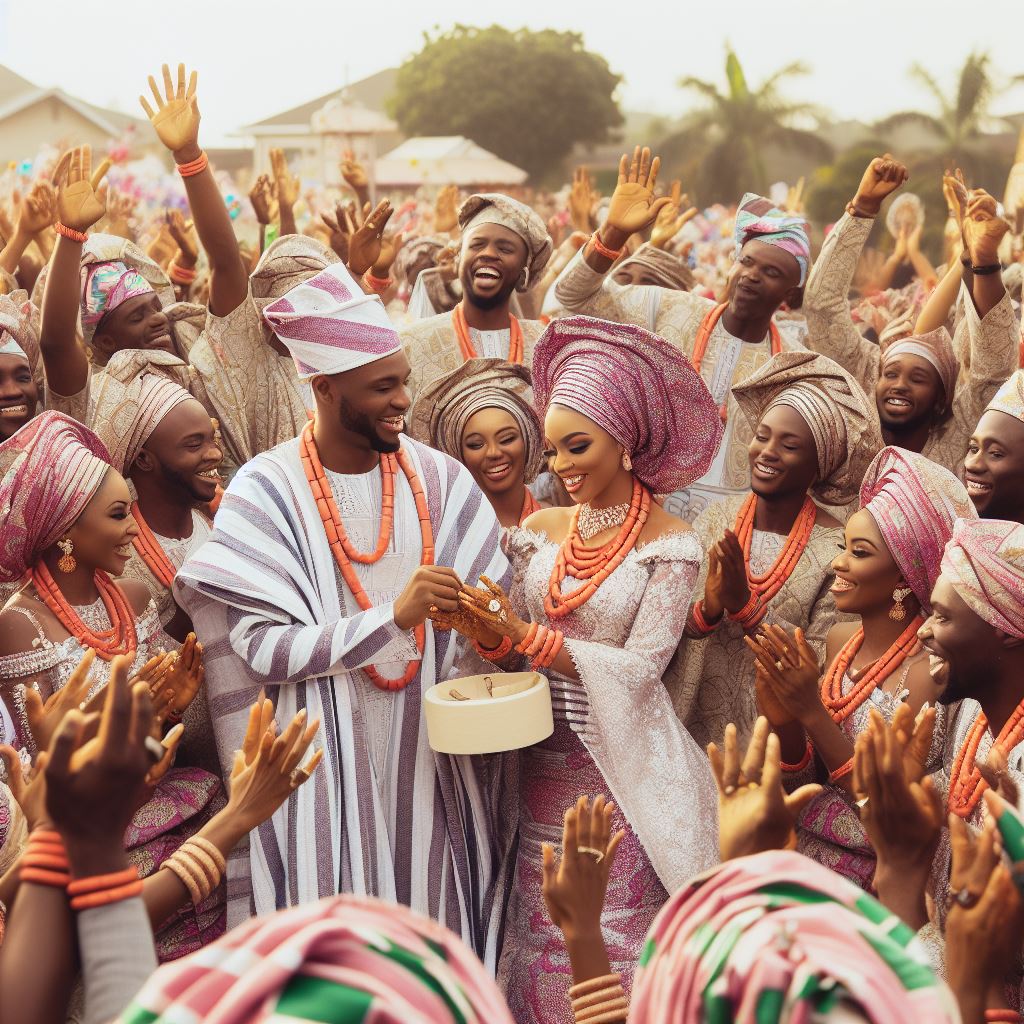Introduction
Marriage is a sacred bond between two individuals who choose to commit to each other for a lifetime.
It serves as the foundation of a strong family unit and society as a whole.
Teaching the younger generation about the value of marriage is essential in shaping their future relationships and overall well-being.
In contemporary society, the concept of marriage has been weakened and depreciated.
High divorce rates, lack of commitment, and the prominence of alternative lifestyles have contributed to this erosion.
However, it is crucial to teach the next generation that marriage is honorable and deserving of respect.
By teaching the value of marriage, we equip the next generation with the tools they will need to build strong, lasting relationships.
They will learn the importance of commitment, sacrifice, and compromise, which are vital ingredients for a successful marriage.
Moreover, understanding the value of marriage can help them navigate challenges and overcome obstacles that arise in any long-term relationship.
Teaching the value of marriage fosters a sense of stability and security for the next generation.
When children grow up witnessing a healthy and loving marital relationship, they are more likely to establish their own strong and stable families in the future.
This contributes to a healthier society, as stable families provide a nurturing environment for children to thrive.
In essence, teaching the value of marriage to the next generation is of utmost importance.
By instilling the significance of commitment, sacrifice, and dedication, we empower them to form strong and enduring relationships.
This not only benefits them individually but also contributes to the betterment of society as a whole.
Understanding the concept of marriage
Definition of marriage
- Marriage is a legally or socially recognized union between two individuals.
- It is a lifelong commitment between a man and a woman, based on love, trust, and respect.
- Marriage involves emotional, physical, and spiritual connection between the partners.
- It is a sacred bond that signifies the merging of two families and creating a new one.
Traditional Nigerian perspectives on marriage
- In Nigerian culture, marriage is highly valued and considered a vital institution.
- It is seen as a way to preserve cultural heritage and maintain family lineage.
- The traditional Nigerian society places great importance on procreation and having children.
- Marriage is also seen as a means of social and economic stability.
Importance of marriage in Nigerian culture and society
- Marriage plays a central role in the social fabric of Nigerian communities.
- It strengthens the bonds between families and creates a support system.
- Marital unions are celebrated through elaborate ceremonies and traditional rituals.
- Marriage is seen as a pathway to adulthood and responsibility in Nigerian society.
- Nigerian culture promotes the idea that individuals should marry and start a family.
- Getting married is considered a significant milestone in one’s life.
- It is believed that marriage brings about personal growth and maturity.
- Marriage is highly esteemed for its ability to provide both emotional and financial stability and security.
- In Nigerian society, marriage is considered the cornerstone for raising children and transmitting cultural values and traditions.
- The family unit is highly respected, and marriage is the cornerstone of family life.
- Married couples are expected to support each other and share responsibilities.
- Nigerian culture promotes the idea that marriage has lasting benefits and creates lifelong companionship.
- It is believed that marriage fosters happiness, love, and unity among couples.
- In Nigerian culture, marriages are traditionally arranged, with parents and elders playing a significant role in the process.
- Family approval and compatibility are crucial factors in selecting a suitable partner.
- Marriage also serves as a means of preserving cultural practices, languages, and customs.
- It is a platform to pass down ancestral knowledge and traditions to future generations.
- Nigerian weddings are elaborate and colorful, showcasing the richness and diversity of Nigerian culture.
- The celebration of weddings allows the community to come together and reinforce social ties.
- Marriage holds significant value in Nigerian culture and society.
- It is a sacred institution that symbolizes love, commitment, and family.
- The concept of marriage should be taught to the next generation to ensure its preservation and appreciation.
By understanding the definition, traditional perspectives, and importance of marriage in Nigerian culture and society, we can teach the next generation the value of this honorable institution.
The significance of marriage
Emotional and psychological benefits of a healthy marriage
Marriage holds immense significance in society, as it not only benefits the individuals involved but also has a profound impact on the well-being and development of the next generation.
A healthy and fulfilling marital relationship provides emotional and psychological benefits that contribute to overall happiness and life satisfaction.
Having a supportive spouse can be a source of emotional stability and comfort during challenging times.
Marriage fosters a sense of security, reducing feelings of anxiety and depression.
When individuals feel loved and supported in their marriage, they experience greater mental well-being and develop a positive self-image.
The emotional connection in marriage also alleviates feelings of loneliness and promotes a sense of belonging.
The role of marriage in personal growth and development
Furthermore, marriage plays a crucial role in personal growth and development.
In a marriage, both partners have the opportunity to learn and grow together.
It requires compromise and selflessness, which challenges individuals to become better versions of themselves.
Spouses provide constructive feedback, helping each other identify areas for improvement.
Additionally, supportive partners in a marriage can encourage and inspire each other to pursue their goals and dreams.
Not only does marriage benefit the individuals involved, but it also has significant implications for the family and the broader community.
Children raised in stable marriages tend to have better emotional and social development.
A strong marital bond creates a stable environment for children, promoting their overall well-being.
Furthermore, marriages that prioritize commitment and communication serve as positive role models for future generations.
Healthy marriages contribute to the formation of strong families, which are the building blocks of a community.
How a strong and stable marriage impacts the family and community
A strong and stable marriage can have a positive impact on the community at large. It inspires others and creates a ripple effect of healthier relationships within the community.
When individuals witness the benefits of a thriving marriage, they are more likely to prioritize and invest in their own relationships, leading to stronger families and communities.
In fact, marriage is honorable not only for its emotional and psychological benefits but also for the role it plays in personal growth, family well-being, and community development.
By teaching the next generation the value of marriage, we can create a society that prioritizes strong and healthy relationships, ultimately leading to a more harmonious and flourishing community.
Read: Marriage is Honourable: Understanding its Roots in Nigerian Culture

Teaching the value of marriage
Parental responsibility in teaching about marriage
- Parents play a crucial role in instilling the value of marriage in their children.
- They should lead by example and demonstrate a loving and respectful relationship.
- Communication is key, parents should have open conversations about marriage and its importance.
- Teaching children about commitment, sacrifice, and the importance of a lifelong partnership.
- Parents should also teach about the challenges and realities of marriage, preparing their children for the future.
Incorporating marriage education in schools and educational curricula
- Schools can play a significant role in educating the next generation about the value of marriage.
- Incorporating marriage education into the curriculum can promote healthy relationships and prevent future issues.
- Introducing topics such as effective communication, conflict resolution, and commitment can be beneficial.
- Teaching the importance of mutual respect, trust, and shared values to create a strong foundation.
- Engaging students in discussions, role-playing exercises, and real-life examples to enhance their understanding.
The role of religious institutions in teaching the value of marriage
- Religious institutions have a rich history of emphasizing the significance of marriage.
- They provide moral and spiritual guidance that can shape individuals’ perception of marriage.
- Religious teachings often highlight the importance of commitment, fidelity, and love in marriage.
- Encouraging couples to participate in pre-marital counseling to develop their understanding of marriage.
- Hosting workshops, seminars, and conferences to educate individuals on the value and sanctity of marriage.
In general, teaching the next generation about the value of marriage is crucial for their future relationships and overall well-being.
Parental responsibility, incorporating marriage education in schools, and the involvement of religious institutions all play essential roles in this process.
Parents should actively engage in conversations and lead by example, while schools should incorporate marriage education into their curriculum.
Additionally, religious institutions can provide moral and spiritual guidance, emphasizing the importance of commitment and love in marriage.
By instilling the value of marriage, we can contribute to the creation of healthy and thriving relationships in the next generation.
Read: Marriage is Honourable: The Socio-Economic Implications in Nigeria
Providing positive examples and role models
Importance of displaying healthy and happy marriages
Marriage serves as a foundation for society, and it is crucial to provide positive examples of healthy and happy marriages.
Children need to witness the love, respect, and commitment shared between their parents.
By displaying a healthy marriage, parents become role models, teaching values such as compromise, communication, and compassion.
Children who grow up in such an environment are more likely to develop healthy relationships themselves.
Encouraging open conversations about marriage within families
Open conversations about marriage help children to understand its value and relevance in their lives.
Parents should create a safe space where children feel comfortable discussing their thoughts and concerns about marriage.
By addressing their questions, parents can provide guidance and shape their children’s perceptions about marriage.
Encouraging conversations also enables children to learn from their parents’ experiences and mistakes.
Incorporating stories of successful marriages in literature, media, and popular culture
Stories of successful marriages in literature, media, and popular culture can inspire and teach valuable lessons about marriage.
Parents can read books that depict strong and loving marriages to their children, emphasizing the importance of healthy relationships.
Movies and TV shows can also serve as a platform to present positive examples of marriages and the challenges that couples tackle together.
When children see representations of successful marriages, it helps them envision a bright future for their own relationships.
Brief Summary
Teaching the next generation the value of marriage is crucial for a healthy society.
By providing positive examples and role models, such as happy marriages, parents teach their children important values.
Encouraging open conversations about marriage helps children understand its relevance and learn from their parents’ experiences.
Incorporating stories of successful marriages in literature, media, and popular culture inspires and educates children about healthy relationships.
By investing time and effort into teaching the next generation about the value of marriage, we lay a strong foundation for their future.
Read: Marriage Counseling: Western Approaches vs. Nigerian Values
Addressing challenges and misconceptions about marriage
Discussing common misconceptions and unrealistic expectations
Marriage is a beautiful journey, but it is not without its challenges. Addressing the common misconceptions and unrealistic expectations surrounding marriage is essential.
Many people hold distorted views of marriage, expecting a perpetual fairytale of eternal happiness and romance, which doesn’t align with reality.
One common misconception is that a partner can meet all their needs and bring happiness.
Such beliefs burden the spouse with unrealistic expectations, often leading to disappointment.
Happiness in a marriage is a mutual effort, not the sole responsibility of one partner.
Another misconception is that love alone can sustain a marriage indefinitely. Love is crucial but needs continuous nurturing. Successful marriages demand commitment, compromise, and effort from both partners.
Some individuals think that marriage will solve all their problems and bring everlasting joy, but this is far from reality.
Marriage is a dynamic relationship that experiences highs and lows.
In any marriage, conflicts and challenges naturally arise; view them as chances for growth and understanding, not failures or obstacles.
Debunking negative stereotypes and societal pressures
Negative stereotypes and societal pressures can also contribute to misconceptions about marriage.
Society often highlights divorce rates and unhappy couples, painting a negative picture of marriage.
This can discourage people from pursuing or valuing marriage.
Additionally, some individuals perceive marriage as a burden that restricts their freedom and autonomy.
However, research indicates that individuals in successful marriages tend to be happier and healthier.
To navigate the challenges faced in marriage, effective communication is vital.
Openly expressing needs and concerns without criticism or defensiveness is essential for resolving conflicts.
Active and empathetic listening allows partners to understand each other better and find common ground.
Learning to compromise and seek win-win solutions strengthens the bond in a marriage.
Providing guidance on handling conflicts and challenges in marriage
It is important to remember that seeking professional help, such as couples therapy, is not a sign of weakness but a proactive commitment to the relationship.
A qualified therapist can provide guidance and support in navigating conflicts and challenges.
Generally, addressing the misconceptions and challenges surrounding marriage is crucial to teaching the next generation its value.
By debunking unrealistic expectations, negative stereotypes, and societal pressures, we can provide guidance on how to handle conflicts and challenges in a healthy and constructive manner.
Marriage is a lifelong commitment that requires effort, compromise, and continuous communication, but it can also bring immense joy, growth, and fulfillment when approached with the right mindset.
Read: Ensuring Your Marriage is Legally Recognized: The Cruc–ial Form
Conclusion
In this blog post, we discussed the importance of teaching the value of marriage to the next generation.
We emphasized the importance of honoring and cherishing marriage, urging its preservation and maintenance.
It is crucial for us to actively participate in promoting a positive view of marriage to future generations.
By summarizing the main points, and reiterating the importance of teaching the value of marriage.
And encouraging readers to actively participate in promoting a positive view of marriage, we hope to make a lasting impact on the next generation.
Marriage offers stability, companionship, and a strong foundation for building a family.
It is essential to equip young individuals with the necessary knowledge and values to form healthy and fulfilling relationships.
By teaching them the value of marriage, we can empower them to make informed choices and build lasting and loving partnerships.
Additionally, by actively promoting a positive view of marriage, we can counter negative cultural influences that undermine the significance of this institution.
Let us work together to educate, inspire, and empower the next generation to appreciate and uphold the honor of marriage.
Only through our collective efforts can we ensure that marriage continues to hold its rightful place as a cherished and esteemed institution in society.
Join us in teaching the next generation the value of marriage and becoming advocates for its importance in our modern world.
Together, we can create a brighter and more fulfilling future for all.




